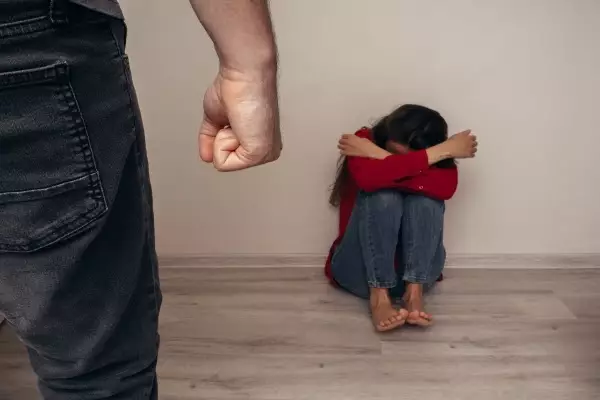Criminal charges can have a lasting and significant impact on an individual's life. In addition to potential jail time and fines, those convicted of crimes may also be required to attend court-ordered classes as part of their sentence. These classes can range from drug and alcohol education to anger management and beyond.
For those who have been ordered by the court to attend classes, it is important to understand what is expected of them. Failure to comply with the terms of your sentence can result in additional penalties being imposed. Here, we will provide an overview of court-ordered classes in Pennsylvania and what you can expect if you are required to attend them.

What are court-ordered classes?
Court-ordered classes are those which are court mandated - meaning that the court has ordered an individual to attend the class, program, or course. There are a variety of court-ordered classes, programs, and courses available, depending on the nature of the offense and the jurisdiction in which the offense was committed.
Common court-ordered classes include drug and alcohol education and driver's education. While court ordered-classes can be frustrating to have to attend, they can also be beneficial--by attending court-ordered classes, an individual can often avoid harsher penalties such as jail time. In addition, a court-ordered program can provide vital education and resources that can help to prevent future offenses from being committed.
Some examples of court-ordered courses include drug and alcohol counseling, parenting classes, and financial management courses.
Depending on the severity of the offense, the court may require the individual to complete a court-ordered program which typically includes multiple classes and may last for several months.
For more minor offenses, the court may only require the completion of one or two court-ordered courses. In some cases, the court may allow the individual to choose their own classes as long as they meet the court's requirements. Regardless of the type of court-ordered classes required, it is important to complete them and all other programs prescribed in order to avoid further legal penalties.
Why am I required to attend court-ordered classes?
If you have been convicted of a crime, the judge may order you to attend one or more court-ordered classes as part of your sentence. The purpose of these classes is typically to rehabilitate offenders and help them avoid future criminal activity. In some cases, such as drug and alcohol education classes, the goal is also to provide those convicted with vital information and resources to help them avoid future offenses.
While court-ordered classes may be frustrating to have to attend, it is important to remember that they are a part of your sentence, and failure to attend or complete them can result in additional penalties being imposed. Failure to comply can result in penalties such as jail time, fines, or an extension of the length of the court-ordered program.
If you have been ordered by the court to attend a class, it is important that you take it seriously and make every effort to comply with the requirements.
Examples of court ordered programs/court-ordered courses
The court system has accredited court-ordered program providers. There are a variety of classes available, depending on the Pennsylvania courts and other court order requirements and the individual's needs.

Anger Management Program
Anger Management classes are often court-ordered, but they can also be voluntary. These classes provide individuals with a better understanding of how to deal with anger in a constructive way. The classes usually include educational sessions and helpful activities. Anger Management classes might be led by a therapist, counselor, psychologist, or other specialists.
Anger Management class participants learn about the causes and effects of anger, and they also learn techniques on how to control their emotions properly. The classes typically last for 8 to 10 weeks, but longer or shorter programs are sometimes available.
Batterers' Intervention Program
The Batterers' Intervention Program is a court-ordered program that is designed to help those who have been convicted of domestic violence. The program typically includes multiple classes and lasts for several months.

Domestic Violence Program
In the state of Pennsylvania, anyone who is convicted of domestic violence must complete a court-ordered class on the dangers and consequences of domestic violence. The class is designed to educate offenders on the impact of domestic violence on victims and families and to help them understand the warning signs of abusive behavior.
It also teaches ways to manage anger and stress in order to reduce the risk of future domestic violence incidents. The class typically lasts for eight weeks, and participants must attend all sessions to be considered to have successfully completed the program, as it is often a probation requirement for domestic violence offenders.
Alcohol Awareness Program
Alcohol Awareness Court Ordered Classes are a state of Pennsylvania program that provides assistance to non-violent, first-time offenders who have pled guilty to alcohol-related offenses. The goal of the Alcohol Awareness Program is to educate participants on the dangers of excessive alcohol consumption and help them take responsibility for their actions.
Alcohol Management classes typically consist of 12 weekly sessions, each lasting two hours. During these sessions, participants will learn about topics such as the effects of alcohol on the body, responsible drinking habits, and the legal consequences of excessive alcohol consumption. Additionally, participants will be required to complete a life skills class and submit to regular alcohol testing.
Drug Awareness Program
Drug management is a class from the State of Pennsylvania Drug Court Program. It is a problem-solving court that uses a team approach to assist eligible, non-violent offenders in recovering from substance abuse disorders and dependency problems.
The drug court team includes the offender, his or her family, the district attorney, the public defender, the Drug Court judge, a probation officer, a drug court coordinator, and treatment providers.
The Drug Court process begins when an offender is referred by the district attorney or public defender. He or she must then appear before the drug court judge to determine eligibility. If accepted into the program, the offender is then placed on probation and is required to participate in intensive treatment. The goal of the drug court is to break the drug abuse and dependence cycle by providing offenders with the tools they need to lead productive, drug-free lives.
Deferred Entry Judgment
Deferred Entry Judgment is a program mandated by the courts in which an individual takes classes in order to defer entering into a judgment. This program is also referred to as "deferred sentencing" or "deferred prosecution." The program aims to provide the participants with education and skills to help them avoid future criminal activity.
The program typically consists of 12 to 15 weeks of classes, which cover topics such as anger management, drug and alcohol abuse, and conflict resolution. Participants must also complete a life skills class and submit to regular drug testing and may be required to pay a fee for the course.
Upon successful completion of the program, the individual's charges may be dismissed, or they may be given a lighter sentence than they would have otherwise received. Deferred Entry Judgment programs are available in many states across the country and can be an effective way to avoid a criminal record.
Parenting Programs
Parenting programs help to ensure that parents have the knowledge and skills necessary to effectively care for their children. This program provides an opportunity for parents to learn about child development, parenting techniques, and family dynamics.
The parenting program also offers guidance on how to deal with specific parenting challenges, such as dealing with a difficult child or managing a household during a divorce. The program can benefit both parents and children, as it provides a structured environment in which to learn and grow. Court-ordered parenting classes help to ensure that parents are better equipped to meet the needs of their children.
Co-Parenting Program
Many courts are now ordering co-parenting classes for parents who are going through a divorce. These classes are designed to help parents learn how to effectively co-parent their children.
The topics covered in co-parenting classes can vary, but they typically include communication skills, conflict resolution, and parenting styles. Co-parenting classes can be helpful for both parents and children, as they provide a structure and support system for parents during a difficult time.
If you are ordered to attend co-parenting classes, making the most of the opportunity is important. Attend all of the classes, and take advantage of any resources that are offered. Co-parenting classes can help you develop the skills you need to effectively co-parent your children and, in turn, for your children to be able to cope with the divorce.
High-Conflict Parenting Program
High-Conflict Parenting classes are becoming increasingly popular as more and more parents find themselves in the midst of a custody battle. While the legal system offers many resources for parents who are going through a divorce, high-conflict parenting classes focus specifically on helping parents to navigate the challenges of co-parenting with a high degree of conflict.
These classes are designed to help parents learn effective communication and conflict resolution skills so that they can better communicate with their ex-partner and co-parent in a productive way. In addition, high-conflict parenting classes also teach parents how to set boundaries and build a positive parenting relationship with their children. By taking these classes, parents can learn how to manage their own emotions and respond to their child's needs healthily, even in a high-conflict situation.
Juvenile Betterment Program
These programs aim to provide young offenders with the skills and support they need to turn their lives around and avoid reoffending.
There is evidence that juvenile betterment programs can effectively reduce recidivism rates, improve education and employment outcomes, and promote positive social and behavioral change.
However, there is still much work to be done in developing and implementing juvenile betterment programs tailored to the specific needs of young offenders. But if we can get it right, juvenile betterment programs have the potential to make a real difference in the lives of young people.

Conclusion
Overall, court-ordered programs are a great way to curb crimes, misdemeanors, and other criminal offenses. Aside from jail time and fines, these programs are one way the state tries to rehabilitate its citizens. The great thing about these classes now is that you can have them "at home" or via distance learning. It is important to still make an effort to attend these, though, as it will be beneficial for both you and your family in the long run.
When signing up for a program, ensure you receive a certificate of completion to prove to the court that you are done. In addition, even though you are in need of these correctional classes, it doesn't mean you should be paying an arm and a leg for them. If you are on a budget, look into state-funded programs or consult with your court on the courthouses listed providers so that you wouldn't be charged with hidden fees or any other type of additional fees.

